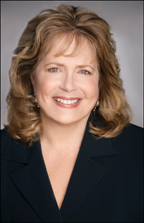 As we reported yesterday, a federal court judge struck a large chunk of the attorney-advertising restrictions that had been promulgated by the Presiding Justices of New York State's four Appellate Divisions.
As we reported yesterday, a federal court judge struck a large chunk of the attorney-advertising restrictions that had been promulgated by the Presiding Justices of New York State's four Appellate Divisions.
Many of our readers may be unaware that prior to their implementation, those very same regulations were vetted (and voted on) by local bar associations and eventually reached the House of Delegates of the New York State Bar Association (NYSBA), where they ultimately met with NYSBA's approval.
In my humble opinion, the federal court's decision should be viewed as an embarrassment to all those who played a part in the promulgation of those draconian restrictions.
And, how is it that 267 members of NYSBA's House of Delegates -- many of whom are respected Bar leaders, seasoned trial attorneys, and, practitioners with major white-shoe firms -- failed to recognize the fundamental constitutional infirmities of the restrictions they were embracing?
In an interesting revisionist move, earlier today I received the following e-mail from Kathryn Madigan, NYSBA's President:
NEW YORK STATE BAR ASSOCIATION NOTICE |
 Office of the President |  Dear Lucas A. Ferrara, Esq.: Dear Lucas A. Ferrara, Esq.:
I wanted to update you on a recent court decision relating to the rules on lawyer advertising recently adopted by the Appellate Divisions. In Alexander v. Cahill, the U.S. District Court for the Northern District of New York analyzed the lawyer advertising and solicitation rules adopted by the Appellate Division of Supreme Court effective February 1, 2007. The Court upheld many of the rules, but did find some portions unconstitutional as protected free speech under the First Amendment. The decision is available online at www.nysba.org/AttyAdvCourtDecision . Our Association's Task Force on Lawyer Advertising began its work two years ago to address the dual concerns of protecting the public from false or misleading advertising or solicitation by attorneys while recognizing the legitimate interests of lawyers in informing the public about legal services. We are gratified that the Court has recognized this balance of interests and we are in agreement with the Court's decision, which in many areas referenced the analysis provided by our Task Force. Going forward, we welcome the opportunity to work with the Appellate Divisions to review and develop rules that strike an appropriate balance within the constitutional framework. The following provisions of the Disciplinary Rules have been held unconstitutional, and the grievance committees are enjoined from enforcing them:
DR 2-101(C)(1) - endorsements/testimonials from current clients;
DR 2-101(C)(3) - portrayals of judges, fictitious law firms, fictitious names, etc.;
DR 2-101(C)(5) - techniques irrelevant to selection of counsel (e.g., a law firm appearing as baseball players);
DR 2-101(C)(7) - nicknames/monikers/mottos that imply an ability to achieve results;
DR 2-102(G)(1) - use of pop-up/pop-under advertisements.
The following provisions have been upheld:
DR 2-102(E) - domain name limitations;
DR 2-103(G) - 30-day rule re solicitation;
DR 7-111 - Communications after personal injury/wrongful death. It is our understanding that the court system will appeal the decision to the U.S Court of Appeals for the Second Circuit and seek relief from the injunction. Please check my blog for updates: http://nysbar.com/blogs/president . Best regards.

Kathryn Grant Madigan
President, New York State Bar Assocaition |
 | 1 Elk Street, Albany, NY 12207 • P 518.463.3200 • F 518.487.5517 • www.nysba.org |
|
Did you catch it?
The State Bar was "gratified" that most of the rules they approved were found to be unconstitutional.
How's that for "spin?"
--------------------------
For our other blog posts on the this topic, please use this link: Attorney Advertising
 As we reported yesterday, a federal court judge struck a large chunk of the attorney-advertising restrictions that had been promulgated by the Presiding Justices of New York State's four Appellate Divisions.
As we reported yesterday, a federal court judge struck a large chunk of the attorney-advertising restrictions that had been promulgated by the Presiding Justices of New York State's four Appellate Divisions.

 Dear Lucas A. Ferrara, Esq.:
Dear Lucas A. Ferrara, Esq.: